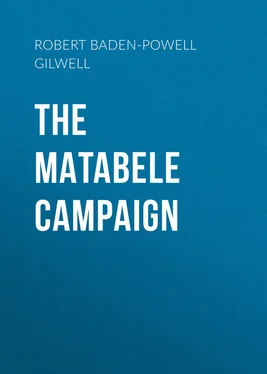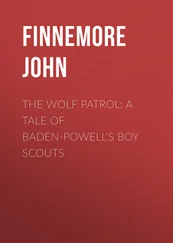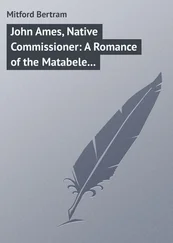Robert Baden-Powell of Gilwell - The Matabele Campaign
Здесь есть возможность читать онлайн «Robert Baden-Powell of Gilwell - The Matabele Campaign» — ознакомительный отрывок электронной книги совершенно бесплатно, а после прочтения отрывка купить полную версию. В некоторых случаях можно слушать аудио, скачать через торрент в формате fb2 и присутствует краткое содержание. Жанр: foreign_antique, foreign_prose, на английском языке. Описание произведения, (предисловие) а так же отзывы посетителей доступны на портале библиотеки ЛибКат.
- Название:The Matabele Campaign
- Автор:
- Жанр:
- Год:неизвестен
- ISBN:нет данных
- Рейтинг книги:5 / 5. Голосов: 1
-
Избранное:Добавить в избранное
- Отзывы:
-
Ваша оценка:
- 100
- 1
- 2
- 3
- 4
- 5
The Matabele Campaign: краткое содержание, описание и аннотация
Предлагаем к чтению аннотацию, описание, краткое содержание или предисловие (зависит от того, что написал сам автор книги «The Matabele Campaign»). Если вы не нашли необходимую информацию о книге — напишите в комментариях, мы постараемся отыскать её.
The Matabele Campaign — читать онлайн ознакомительный отрывок
Ниже представлен текст книги, разбитый по страницам. Система сохранения места последней прочитанной страницы, позволяет с удобством читать онлайн бесплатно книгу «The Matabele Campaign», без необходимости каждый раз заново искать на чём Вы остановились. Поставьте закладку, и сможете в любой момент перейти на страницу, на которой закончили чтение.
Интервал:
Закладка:
“And having fed our horses, each of us now got his ‘billy’ out, – a ‘billy’ (cooking–tin) is carried here by every officer and trooper in a case upon his saddle, – and, having lit a fire, we got our coffee boiled, and breakfast under way. Then two of us, taking with us our two prisoners, clamber up a koppie, from whose top we hope to get a view of the enemy’s country. There is something ludicrous in, and yet one cannot laugh at, this miserable pair. Linked wrist to wrist, they move as would a pair of sullen Siamese twins. The grass is prickly hereabouts, and both want to keep to the tiny goat–track that we are following, and so they have to sidle up like crabs, going hand in hand along it. At length we gain the top; there is a splendid panorama, and now that the sun is well up, the mountains out across the plain look but a few hundred yards away, so clear is every rock, so deep the shadows. The prisoners have no hesitation in telling us exactly where their friends are camped upon the mountains, and where they keep their women and their cattle. We sit and stare for half an hour, and then agree that, having come so far without accident, we may as well go farther, and get a nearer view of these redoubtable strongholds. We return down to our party, and as we descend, we remember that our native scouts and the prisoners have had a pretty long walk as it is. They had shown us what we had come out to see, and we now proposed to send them back.
“So, having seen them shuffling homeward, we turned our horses’ heads towards the mountains, and continued our way across the open valley. On and on, keeping everywhere a bright look–out against surprise. The veldt was rolling grassy downs, all covered, sometimes sparsely, sometimes densely, with bushes, – mostly thorns. Every open speck of sand, every track, was keenly scrutinised for ‘spoor’ (or tracks of men), and though there was not a soul to be seen about the veldt, the signs of their propinquity were here too glaring to be missed.
“Leaving our horses, with the remainder of the men, well hidden behind a rise, we two walked on on foot, each carrying a rifle with him. It was an anxious time, as very soon the bush had shut us out of sight of our support, but still we kept along, anxious to gain the summit of a rounded, rocky hill, whence we could see all round, and so foresee all danger.
“Now, on the paths before us were fresh tracks of an ox, behind whom had walked a man with naked feet, and going a little lame on one – the left toes dragged, he used a stick. They had passed along before sunrise, because across the tracks there ran the spoor of guinea–fowl heading towards their feeding–ground in yonder patch of maize. A single ox thus driven in the night assuredly meant a pack–ox smuggling in supplies to one of the rebel strongholds. More paths converged into the one we followed, bringing more and more people, women’s feet and children’s, oxen and donkeys, all fresh, and heading in the same direction.
“Then, mounting on the rocks, we followed with our eyes the direction of the path through thicker bush until it reached a solitary mountain. There we could see a thin wreath of smoke curling up from the bush, and, looking through our powerful telescope, we soon could see some other fires high up the hillside close to some mighty caves. Dogs were barking, cattle lowing, at the back of one particular shoulder of the hill; and while we stared to try and distinguish figures in the rocks, a sudden flash up near the mountain–top just caught our eye. Then, focusing the glass upon it, soon we saw the dark brown figures of some twenty natives squatting up about the skyline, and the frequent glint and sparkle showed they carried guns and assegais. Nearer and nearer we crept, gaining another koppie, whence we had a better view, and from here we marked the line that our attacking parties ought to take, and where to post our guns with best advantage. We might have stayed there longer, for it was a tempting spectacle to sit and watch. But the niggers in the hills are calling to each other, evidently suspicious, if not actually aware of our presence – and they have eyes as strong as telescopes. Now some crows fly startled from the bush a few hundred yards to our right. Some one is moving there! Up springs a plover screaming farther on – they’re on the move. We have seen all that we want to see. To stay in one place for long when scouting is risky at any time; to–day it looks even dangerous. So we quietly slip away – not by the path we came – for that is the way you run into your enemy’s ambuscades.
“Then, as we went along, a novel footprint caught our eye, and struck us much as Friday’s must have struck old Crusoe. A deep indented hollow of the fore part of a foot showed plainly in the grass to one side of the path, heading as to cross it, and in the grass beyond the other side the deep indent was seen of a heel in the earth. This was the spoor of a man, running much in the same direction as ourselves, yet wishing to avoid notice, because he jumped the path. Evidently a messenger going out the way we had come, and knowing of our presence there, and on his way to warn the outposts, through whom we had passed in the dark, to catch us on our homeward road. Our horses now had had their second feed, the men had had a kind of meal, and so we started on again. We had to visit two more hills, but found them both unoccupied. And then we turned our heads for home. Caution became more than ever necessary now. There was only left the short afternoon of daylight, our horses were no longer over fresh, and we had five–and–twenty miles to go, ten of them along a defile valley. So with an advanced file sent well ahead, and one dropped well in rear, we journeyed on, each man keeping an ever–restless, bright look–out.
“And though we talked and chatted from time to time for many a weary mile, you never saw your neighbour’s eyes look at you for a moment. While talking, one had still to keep one’s eyes afield. And what a mixture in our little band of eight! Under the similar equipment of cocked–up Boer or cowboy hat, with ragged shirt and strong cord pants, with cartridge–bandolier, and belt from which hung knife and pipe, tobacco–bag and purse, all grimy and unkempt, and sunburnt to a rich, dark brick colour, each individual was an interesting study in himself. Here is one with pince–nez – ( pince–nez on a trooper!) – a Cambridge man of highest education, who thought he would take to farming in Rhodesia; but his plans are interrupted by the war, and while that lasts he takes his place, like others, in the ranks. Beside him rides a late A.B. seaman in the Royal Navy, a fine young fellow, full of pluck, who will press on where devils fear to tread, but he is disappointing as a scout, for, after having been close up to the enemy, he cannot tell how they are posted, what their strength, or any other points that the leader wants to know. This other man an architect, and yon a gold–prospector – in fact, there’s a variety enough among them to suit almost any taste.
“The sun has set and darkness has drawn on before we are well out of the defile; but we are now beyond the rebel outposts, and getting nearer home, so there’s nothing much to – bang! phit! – and a bullet flits just over our heads! It came from behind; we halt and hear the clatter of hoofs as the man who was left as rearguard comes galloping up the road. A moment later he appears in the dusk rounding the next turn. He no sooner sees us than he halts, dismounts, drops on one knee, takes aim, and fires straight at us. We shout and yell, but as he loads to fire again, we scatter, and push on along the road, and he comes clattering after us. The explanation is that nervousness, increased by darkness coming on, has sent the man a little off his head, and, ludicrous though it be, it is a little unpleasant for us. None of his comrades care to tackle him. ‘It is a pity to shoot him,’ ‘His horse is tired and cannot catch us up,’ and ‘He’ll be all right as soon as he has got over the first attack of fright’; and so we leave him to follow us, keeping a respectful distance. At length the fires twinkle ahead, and, tired and hungry, we get back to camp.
Читать дальшеИнтервал:
Закладка:
Похожие книги на «The Matabele Campaign»
Представляем Вашему вниманию похожие книги на «The Matabele Campaign» списком для выбора. Мы отобрали схожую по названию и смыслу литературу в надежде предоставить читателям больше вариантов отыскать новые, интересные, ещё непрочитанные произведения.
Обсуждение, отзывы о книге «The Matabele Campaign» и просто собственные мнения читателей. Оставьте ваши комментарии, напишите, что Вы думаете о произведении, его смысле или главных героях. Укажите что конкретно понравилось, а что нет, и почему Вы так считаете.












